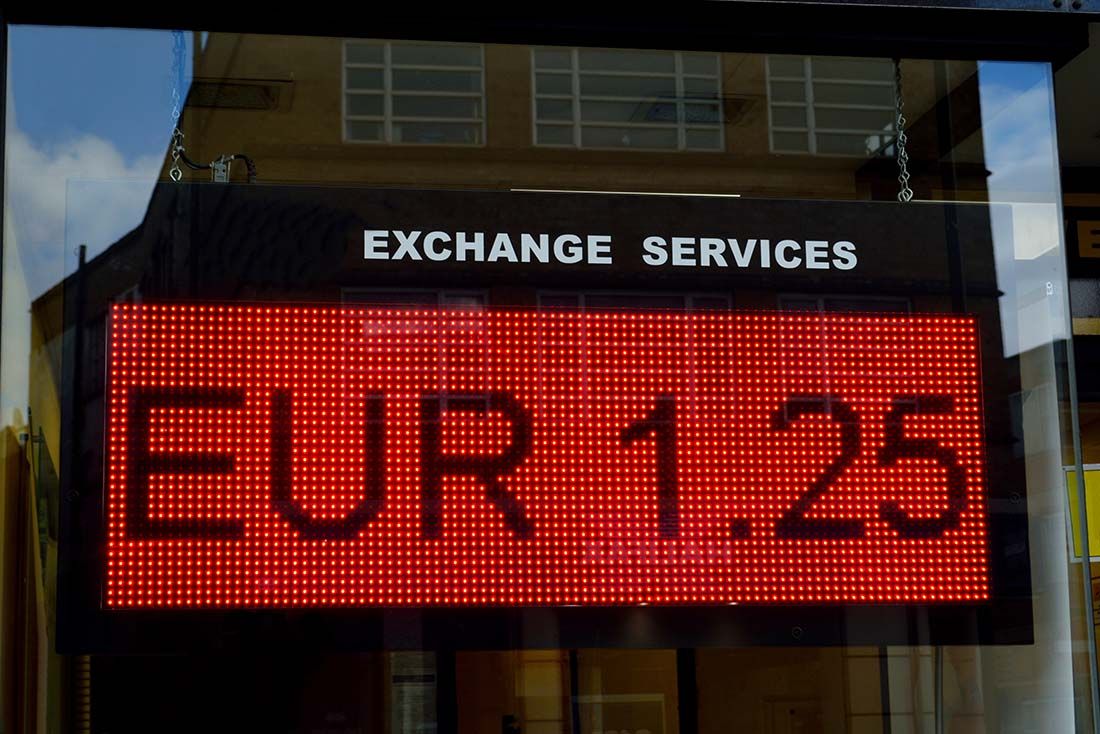Sterling to Recover in 2020 as Negotiated Brexit Unlocks Economic Boost, but Near-Term Losses Expected

Image © Adobe Images
- Coming weeks to be "fraught with volatility" for Sterling
- 3 factors to push Sterling lower near-term
- But, negotiated Brexit deal is odds-on scenario, to prompt recovery
Foreign exchange strategists at a global investment bank say Sterling is likely to be driven lower on three factors over the short-term, but the currency is ultimately likely to recover as a 'no deal' Brexit will be avoided.
According to analysts at German-based Berenberg Bank, the odds of a negotiated Brexit settlement being realised still stands at 60%, and on this assumption a recovery in the besieged Pound is likely.
But Pickering says he would not be surprised to see further declines in the value of the currency over the near-term as the Brexit process will continue to test investor nerves.
"While Johnson’s upping of the Brexit ante may be winning him support at home, he is not inspiring confidence in the financial markets," says Kallum Pickering, an economist with Berenberg Bank in London.
The Pound-to-Euro exchange rate has this month slipped below 1.09 for the first time in two years, while the Pound-to-Dollar exchange rate also testing fresh two-year lows below the 1.21 level.
"The 1.9% depreciation of Sterling versus the Euro, and 2.4% drop versus the U.S. Dollar, since 22 July – the day before Johnson became PM – reflects the markets’ increased worries about a hard Brexit on 31 October. The drop partly reflects the market’s belief that a hard Brexit would be an act of economic vandalism that could tip the UK into a recession and lower the UK’s long-run growth potential," adds Pickering.
Berenberg Bank now place odds of such a 'hard' Brexit at 40%.
But, this increase in expectations for a 'hard' Brexit is "probably not enough on its own to explain the Pound’s latest slide," says Pickering.
Expectations for a snap General Election before 2019 is over have risen sharply with the Government now able to command a majority of just 1 in parliament.
Many analysts see a General Election as offering up further uncertainty, the type of which tends to weigh on Sterling.
"The recent selling of Sterling probably also reflects genuine uncertainty about how Brexit will be resolved and captures other possible downside risks – including the prospect of a snap election that ends with a Conservative-Brexit Party coalition or a Labour-led coalition with far-left Jeremy Corbyn as PM," says Pickering.
Time to move your money? Get 3-5% more currency than your bank would offer by using the services of foreign exchange specialists at RationalFX. A specialist broker can deliver you an exchange rate closer to the real market rate, thereby saving you substantial quantities of currency. Find out more here.
* Advertisement
The coming few weeks are expected to be fraught with volatility for Sterling as markets hang on Johnson's every word concerning Brexit.
Signs that the EU are point-blank unwilling to consider renegotiating the existing deal they struck with Theresa May suggests to some that the two sides will be parting ways without a deal on October 31.
"Boris Johnson seems to be picking fights on two fronts – with the EU and with moderate Conservatives. We are probably heading for a noisy, but fruitless, summer of UK-EU talks followed by an almighty clash between Johnson, who may try his luck with a hard Brexit, and a majority-moderate parliament that will try to stop him. This sets the stage for an autumn of action when the pieces of the Brexit puzzle begin to shift again," says Pickering.
According to Pickering, there are now three factors could push Sterling lower still in the near-term:
1) market worries about a hard Brexit continue to rise because the UK and EU remain at odds over the terms of the Withdrawal Agreement;
2) UK economic data continue to surprise to the downside; and
3) in response to the increased threat of a no-deal Brexit, the Bank of England (BoE) takes a dovish tilt to reassure markets that it would support the economy in such a scenario.
2020 Recovery
Despite the risks to Sterling, the currency is seen as being undervalued by Berenberg.
The investment bank note that the odds that the EU and UK avoid a 'hard' Brexit stand at 60%.
And, a negotiated Brexit should see the UK "enjoy a medium-term economic relief rally on the back of lower uncertainty and rising confidence," says Pickering.
Add to this Johnson's plans to boost government spending and the economy should enjoy "a modest fiscal stimulus would further boost medium-term demand growth," says Pickering.
The Bank of England is widely expected to increase interest rates should a negotiated Brexit deal unlock economic growth and further boost employment and wages.
A side-effect of higher interest rates are inflows of capital into the UK which in turn bids the value of Sterling higher.
"In this scenario, risks to Sterling would be titled to the upside. By the end of 2020, we would see GBP/USD at 1.40 and GBP/EUR at 1.16," says Pickering.
Time to move your money? Get 3-5% more currency than your bank would offer by using the services of foreign exchange specialists at RationalFX. A specialist broker can deliver you an exchange rate closer to the real market rate, thereby saving you substantial quantities of currency. Find out more here.
* Advertisement




